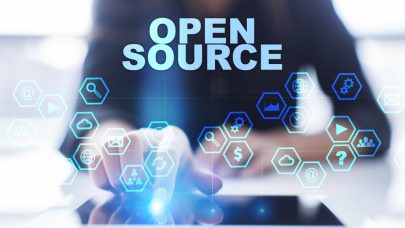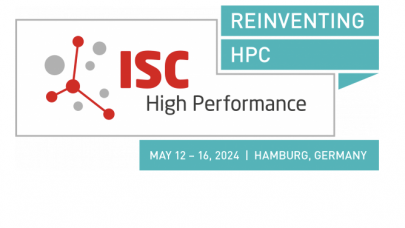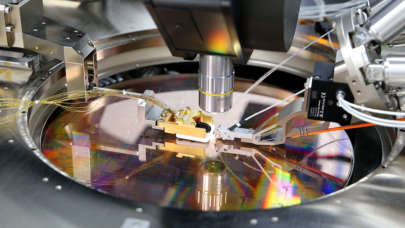COLUMBIA, Md., Oct. 18, 2021 — Three renowned research partners – pulled from academia, industry, and nonprofit – are hosting a joint symposium later this month focused on the current and future state of artificial intelligence (AI) and quantum computing, open and free to all. The MATRIX AI Consortium, housed in The University of Texas at San Antonio, BigBear.ai, and the Maryland Innovation & Security Institute (MISI) will host the conference live and virtually.
The conference program will focus on the current state of AI and Quantum Computing and discuss the potential impact of the convergence of these two transformational technologies.
“MATRIX has been offering a series of transdisciplinary AI seminars and workshops since its inception. In this offering, we feature how AI systems are inextricably linked to its societal impacts with respect to matters of fairness, privacy, bias, and energy constraints. We also present how the interplay with quantum computing can impact emerging computing systems,” said Dhireesha Kudithipudi, founding director of the MATRIX AI Consortium.
“Organizations across the public and private sectors are drowning in data, and the amount of data created over the next three years is expected to exceed the data created over the last 30 years,” said Reggie Brothers, chief executive officer of BigBear.ai. “AI-powered tools augment the human decision-making process, and the convergence of quantum computing and AI will meaningfully strengthen those tools and expand the potential for leaders to harness the power of their information and achieve decision dominance. BigBear.ai is thrilled to partner with UTSA and MISI to explore what the future holds as these two important technologies converge.”
“AI and Quantum and its future role in the defense and competitive advantages to our society are foundational to the work MISI Mission Accelerators, DreamPort and MindScape, are focused on. Our nation has trailed in making the investments needed to ensure supremacy in the AI and Quantum race, but this is changing and organizations such as MISI and its partners across academia, industry and the leading partners of the US are pivotal to the work our organization has and continues to engage in on behalf of our stakeholders. We are happy to engage in this effort in doing our part to support the continued advancement, collective thinking, and information sharing needed to support this very important national and global challenge,” added Armando Seay, co-founder and director of the Maryland Innovation & Security Institute.
Keynote speakers include Sebastian Risi, associate professor from the IT University of Copenhagen whose research is focused on computational evolution, deep learning, and crowdsourcing, with applications in robotics, video games, design, and art; Michael Hayduk, deputy director of the Information Directorate, Air Force Research Laboratory (AFRL) where he plays a key role in overseeing an annual budget of over $1.8 billion, leading the activities of over 1,200 scientists, engineers, administrative and support personnel; and Zachary Chase Lipton, assistant professor of operations research and machine learning, Carnegie Mellon University, whose research is focused on machine learning (ML) algorithms, and for healthcare, empirical deep learning, natural language processing, and causal inference and discovery.
Over two dozen panelists and moderators will participate in the program, including representatives from the Army Research Laboratory, BigBear.ai, CACI International Inc., The Cybersecurity Manufacturing Innovation Institute (CyManII), the Department of Energy, Honeywell Quantum Systems, MITRE Corporation, Oak Ridge National Laboratory, Pacific Northwest National Laboratory Rochester Institute of Technology, Sandia National Laboratories, University of Massachusetts Amherst, UT Austin and UTSA. A full line-up of speakers is available here.
AI and Quantum Computing are transformational technologies that will fundamentally change how we observe, interpret, and interact with the world of data that surrounds us every day. AI is becoming ubiquitous, as we observe a recent wave of advancements driven by technical achievements that include GPUs and high-performance computational platforms that process massive volumes of data faster and with steadily improving accuracy. Quantum computing is still in its early stages of development, but we have observed a steady stream of breakthroughs and innovations, coupled with a significant investment in the technology needed to bring quantum supremacy, or the ability of a quantum computer to outperform their classical counterparts.
Quantum computing has the potential to add significant power to AI technology, overcoming the limitations that restrict the functionality of AI inherent in classical computers. Quantum computers perform calculations based on the probability of an object’s state before it is measured. Compared to classic computers, which are based on binary values (1s and 0s), the quantum computer has the potential to process exponentially more data. This has tremendous potential to impact AI – which relies on processing huge amounts of complex datasets to develop new algorithms that allow for better learning, reasoning, and understanding.
This conference will explore how quantum computing is likely bring significant new advances in AI, and the work underway to achieve critical milestones to be considered a mature technology, including:
- The continued advancement and development of less error-prone and more powerful quantum computing systems to support AI advancement
- The development and wide adoption of open-source modeling and training frameworks and quantum AI algorithms
- The development of a trained workforce and a substantial and skilled developer ecosystem
- The demonstration of compelling AI applications for which quantum computing that outperforms classical computing
To register for the free event, visit: https://misi.tech/events/event-ai-quantum-computing-symposium.php.
To attend virtually, register here: https://misi.tech/events/event-ai-quantum-computing-symposium.php.
To attend in person, register here: https://misi.tech/reg/reg-ai-quantum-computing-symposium-vip.php.
Summary Details:
Date: October 21-22, 2021
Time: 9 a.m. – 3 p.m. each day
Venue: MISI DreamPort (7000 Columbia Gateway, Suite 150, Columbia MD 21046 / 443-626-4450)
Mix of individual speakers and panels, with a networking opportunity over lunch
Hosts: UTSA MATRIX AI, BigBear.ai and MISI DreamPort
About The MATRIX AI Consortium for Human Well-Being
The MATRIX AI Consortium for Human Well-Being (MATRIX) is a transdisciplinary multi-stakeholder research enterprise focused on achieving excellence in artificial intelligence (AI) research and scholarship. MATRIX’s mission is to conduct transformative research in the design, use, and deployment of AI that enhances human life; and offer rigorous research training opportunities that transcend disciplinary boundaries. Comprised of over 60 researchers from its four core collaborating institutions in the greater San Antonio area – The University of Texas at San Antonio, UT Health San Antonio, Southwest Research Institute, and Texas Biomedical Research Institute. https://ai.utsa.edu.
About BigBear.ai
A leader in decision dominance for more than 20 years, BigBear.ai operationalizes artificial intelligence and machine learning at scale through its end-to-end data analytics platform. The company uses its proprietary AI/ML technology to support its customers’ decision-making processes and deliver practical solutions that work in complex, realistic and imperfect data environments. BigBear.ai’s composable AI-powered platform solutions work together as often as they stand alone: Observe (data ingestion and conflation), Orient (composable machine learning at scale), and Dominate (visual anticipatory intelligence and optimization). Visit http://bigbear.ai.
About Maryland Innovation & Security Institute (MISI)
Founded in 2018, MISI has rapidly become the gathering place for the US Government it global partners, world leaders in technology seeking to accelerate advancements in cyber, AI, next cryptology, zero trust and critical infrastructure protection. Its stakeholders include the DoD, Intelligence Community, state and local government and leading corporations. The award-winning organization was founded as a not-for-profit and has fostered a well-earned reputation for getting the critical work of technology innovation discovery, integration and viability testing. MISI partners with the leading technology disrupters, corporations, academic researchers and global technology change makers as key mission partners. MISI applies deep solutions thinking that pushes the envelope in the current state of AI and ML to solve as yet unsolvable problems for its stakeholders. MISI is headquartered in Columbia, MD, and operates the DreamPort and the newly launched MindScape Mission Accelerator. https://misi.tech.
Source: The University of Texas at San Antonio


























































